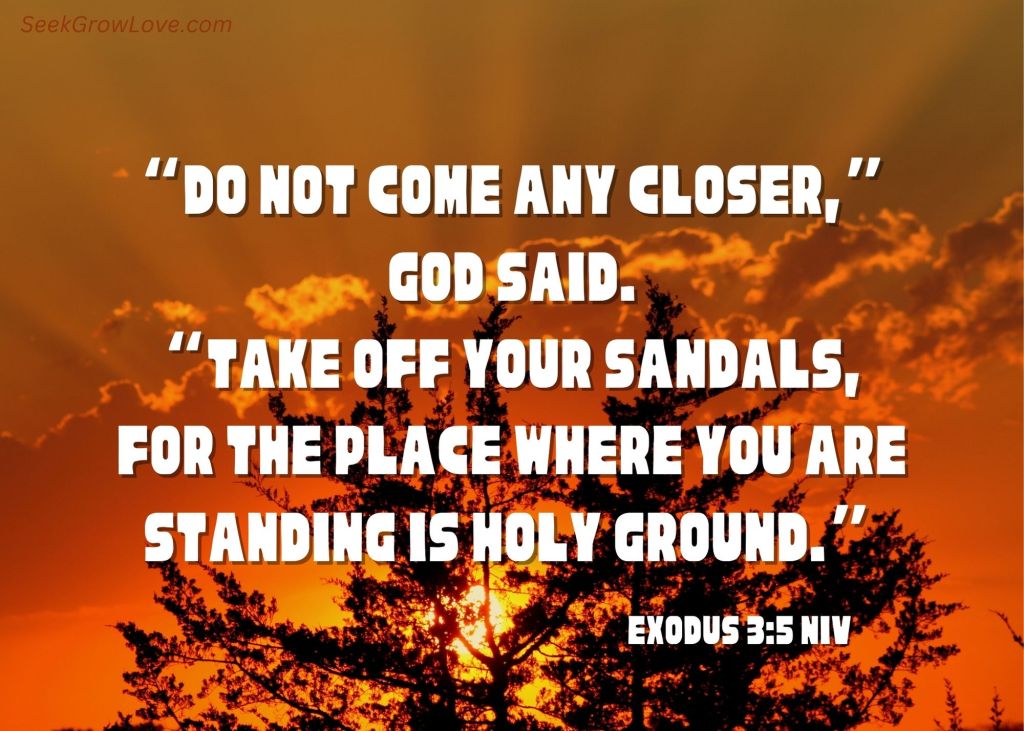OLD TESTAMENT: EXODUS 3-4
POETRY: PSALM 23
NEW TESTAMENT: MATTHEW 19
My son is fully in his threenager stage of life. Our days go something like this:
“Jonah, go wash your hands. It’s time for dinner.”
To which he responds, “Mama, I’ve already told you three [pronounced like tree] times. I’ve already washed my hands, and I’ll eat when I’m done playin’.”
You can imagine my response to this. Let’s just say I have plenty of opportunities for correction and discipline throughout the day.
Many times, I can recognize my own voice in what he says. What I say, he repeats in his cute toddler-growing-up way. In the conversation I mentioned before, his main goal was to keep playing, so he was just saying whatever he thought would lead to that outcome. He has a tendency to want to keep doing whatever he is currently doing. So if he’s playing, he wants to keep playing. If he’s at church, he wants to stay at church. If he’s at home, he wants to stay at home. This means starting the next activity involves a lot of excuses as to why he can’t quit what he’s doing and move on to the next thing, even if there are good things in store for him when he does.
In today’s passages, we read about several excuses given as to why someone couldn’t follow through with what they were asked to do. In each case, the excuses were made because the person didn’t want to leave their comfort zone and change their life.
In Exodus 3-4, Moses was leaving his flock to go find the lost sheep. On the way, he saw a burning bush. The LORD spoke to him there, calling him to go shepherd the Israelite people as they left Egypt and traveled to the Promised Land of Canaan. Moses gives a series of three excuses. He first asked what he should do if the Egyptians didn’t listen to him – probably thinking that it was a lost cause to go and try to ask the Egyptians to give up their unpaid labor. Then, he says that he is not a good speaker, calling himself “slow of speech and tongue.” Finally, he just comes right out and says, “Lord, please send someone else.”
To each of these excuses, God responds with a resounding, “Go, I will be with you!” God doesn’t point to what Moses was capable of. Instead, he draws Moses’ attention to what he – God – can do through Moses. For the first excuse, God shows how Moses will be able to do wonders through God’s power. In the case of the second excuse, God points to how he is the creator. He will teach Moses what to say. In the last pleading excuse, God gives a helper to Moses in Aaron to be a mouthpiece for him.
To each of Moses’ excuses, God gives a clear path forward, showing how he in his might and power will make what he has said come to pass.
Our passage in Matthew 19 repeats this theme of excuses. The rich young ruler had attempted to live righteously, following the law. Jesus told him that he lacked one thing: He needed to sell his wealth and give to the poor. The rich young ruler went away sad, probably full of excuses. He didn’t want his life to change.
We have been called ourselves. When we hear the gospel, we must change. When we hear God’s leading in our life, we must act. But, all too often, we are filled with excuses. We don’t want to leave our comfort zone, and we think of a million reasons why this is the case.
Today, don’t focus on why you think you cannot accomplish something for God, or why you think you cannot move forward in faith. Instead, focus on what God has done and will do for you. Trust that he will lead you to “green pastures” and “quiet waters.”
~ Cayce Fletcher
Cayce writes about discipleship, productivity, and homemaking at her blog https://amorebeautifullifecollective. You can find her latest post on biblical ideas creating an ideal schedule here. You can also listen to A More Beautiful Life Collective Podcast on Apple Podcasts, Spotify, YouTube, or wherever you listen to podcasts.
REFLECTION QUESTIONS
- Moses was asked to go down to Egypt, but he didn’t want to go because he felt inadequate. Have you ever felt inadequate when you have been asked to do something for God? How can you overcome those inadequacies and act in faith?
- What excuses have you given when it comes to following Jesus in faith?
- Psalm 23 focuses on how God, as a good shepherd, leads to good things. What are some good things to which God has led you in your life?


